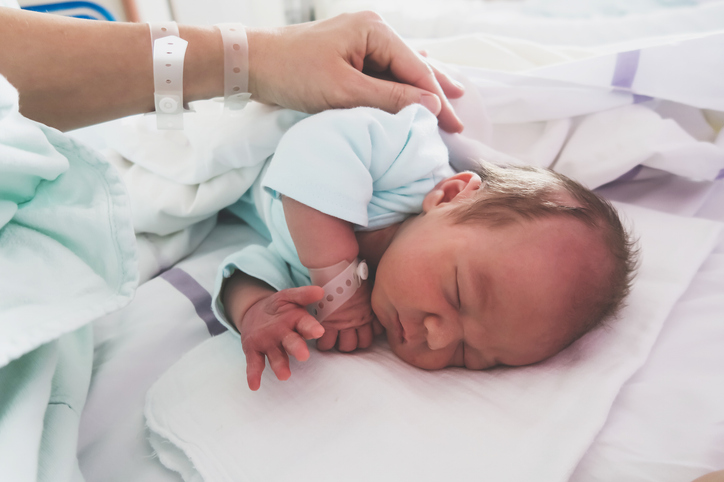Module - Examination of the Newborn (level 7)
The aim of this module is to equip students with the knowledge and skills to effectively and safely undertake examination of the newborn/ 6-8 week examination. This module is based on the NHS Newborn and Infant Physical Examination Programme and is a screening test for abnormalities of the eyes, heart, hips and testes.
This module combines theory with clinical practice offering the student the opportunity to explore and develop the role of the examination of the newborn and how it can be enhanced. The module focuses on the biological and social sciences upon which the practitioner can develop infant/family management plans and evaluate the outcomes of their interventions.
It is essential that you acquire a practice supervisor/assessor who can support your learning and assess your practice. There is a requirement for students to pass the qualificatory practice element and successfully complete the accompanying competency profile in order to be awarded the Examination of the Newborn award.

The indicative course content will cover the principles of screening. Complications of Pregnancy - effects upon foetal development / wellbeing Adaptation to extra-uterine life of systems Neonatal physiology, Respiratory, Cardiovascular, Nervous system, Gastrointestinal system, Skeletal, Reproductive, Immunological, Endocrine, Congenital abnormalities, Gestational assessment methods. Procedure and application of practical examination skills
Qualificatory Practice: You will develop the knowledge and understanding to underpin skill development in the clinical area. Clinically based practice will include screening for congenital cardiac defects, developmental dysplasia of the hip, some ocular disorders (including congenital cataract), and undescended testes as well as a general physical examination.
On successful completion of the module you will be able to:
- Demonstrate critical analysis and synthesis of the principles of screening and the routine newborn and infant physical examination
- Critically analyse, evaluate and synthesise the ethical, legal and professional issues underpinning examination of the newborn
- Competently undertake the physical examination of the newborn/6-8 week old infant including screening for congenital abnormalities such as cardiac defects, developmental dysplasia of the hips, ocular disorders (including congenital cataracts) and undescended testes
- Critically analyse how learning from this module has transformed your understanding of your practice
Prior successful study at the underpinning level; cannot study the module at level 6 if already studied at a different level; need a faciltatorin practice to sign-off work-based competencies; aimed at midwives, neonatal nurses and health visitors
20 Credit Health Module Pricing
Tuition fees are set annually and are subject to review each year. The University may therefore raise tuition fees in the second or subsequent years of a course, in line with inflation and/or the maximum permitted by law or government policy. Students will be notified of any changes as soon as possible.
Location
Online Learning
Online learning at the University of Cumbria is an interactive experience that makes use of a range of technologies and media types to provide a rich learning environment.
Find out more
Find out more about studying with us
Attend an Open Day at Cumbria
An Open Day is your opportunity to explore one of 5 campuses, meet your lecturers, and find out how the University of Cumbria could become your new home.


.jpg)


